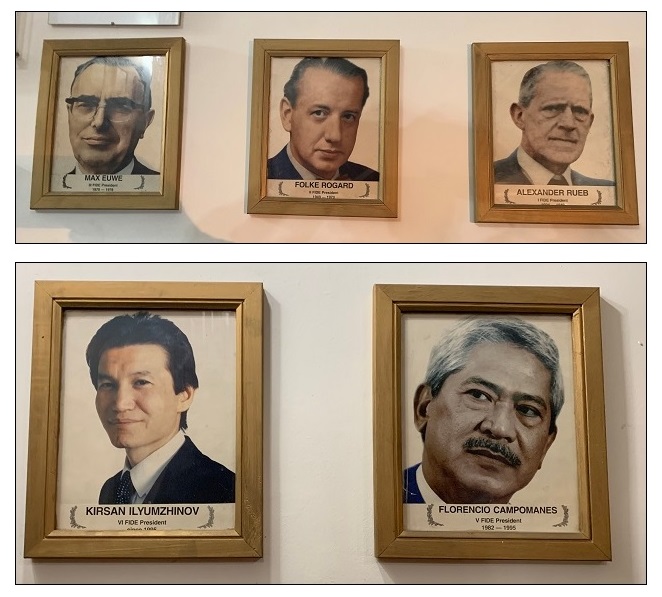
See C.N. 11341
Edward Winter

Below is the full set of our feature articles about the Fédération Internationale des Echecs:
FIDE Championship (1928)
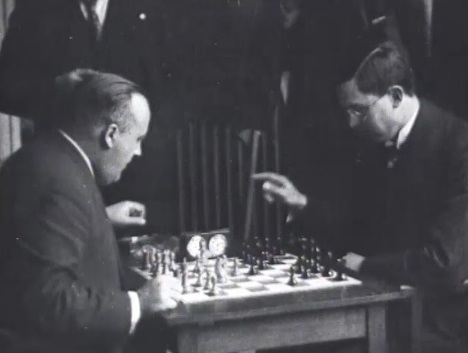
C.N. 10668
Spassky v Fischer, Reykjavik,
1972
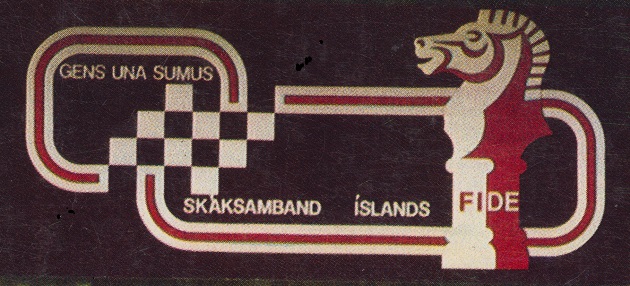
The 1986 FIDE Presidential Election
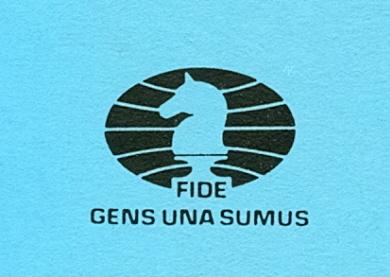
Comic Relief: Raymond Keene and Chess
Politics

See too Ricardo Calvo: Persona non Grata and Chess Journalism and Ethics.
Concerning Arkady Dvorkovich, see C.N.s 11003 and 11004.
In 1939 the President of the Argentine Chess Federation, Augusto de Muro, was involved in negotiations for a rematch between Alekhine and Capablanca. Page 240 of our monograph on the Cuban reproduced the letters sent to de Muro by Capablanca and Alekhine on, respectively, 16 and 18 September 1939. See too C.N. 4696.
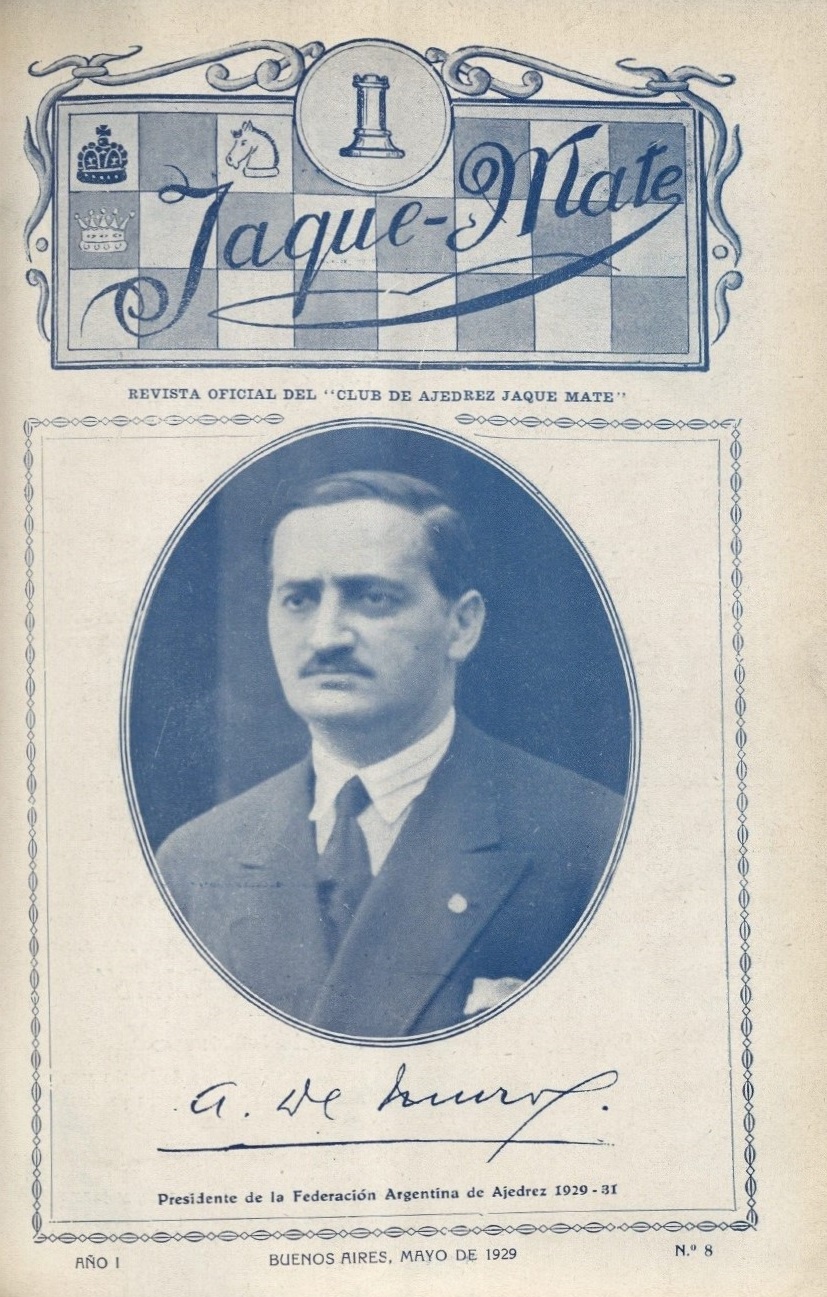
We now note that a group within FIDE is proposing that, subject to further investigation, Augusto de Muro should be recognized as the second President of FIDE, for the period 1939/40 until 1946, i.e. an interruption of Alexander Rueb’s tenure (currently regarded as lasting from 1924 to 1949).
Any investigation of such an historical issue is to be welcomed if conducted with rigour and free of nationalistic considerations.
The article includes the following (text reproduced as it stands):
‘The next FIDE Congress was held seven years later, between July 25 and 27, 1946 in Winterthur (Switzerland), where only 9 delegates attended, in the absence of all the Latin American delegations. There Mr Rueb was once again appointed President of FIDE without referring to the corresponding transfer of command – from Mr De Muro to Mr Rueb – and resuming the mandate as indicated by the well-known historical line of time, assuming the presidential period 1924-1946 without interruptions, which clearly it does not adjust to what really happened and ignoring the decisions adopted by the previous Congress of the entity held in Buenos Aires 1939.
Let us remember that Mr Erwin Voellmy stated that: “during the war period, no European Federation made contributions to the entity, with the exception of Denmark, so FIDE had practically ceased to exist”. Also, who was a Swiss delegate in several Congresses, pointed out that FIDE did not hold congresses from 1940 to 1945. In this European perspective, which does not seem to consider what was done in the American continent by the President of the legal FIDE, Mr Augusto de Muro, the supposed mandate that Mr Rueb would have had should cease immediately from that year of 1940.
In this line of analysis the historian Mr Edward Winter coined the term “interregnum” to refer to FIDE’s actions during the armed conflict, denoting its inaction, but that is worth, we insist, only from a perspective focused on a Europe that was the central stage of the world conflict, but not considering what was done in America since the representation of the world entity as decided in 1939.
Therefore, it is fitting that Mr Augusto De Muro be included as President of FIDE for the period 1939/1946. Before and after, in the gallery of former Presidents of the entity, Mr Alexander Rueb must appear. In this way, a historical fact will be recognized that we have called, alluding to the Argentine, “the unqu[e]stionable President of FIDE”.’
The reference to us in the third paragraph above is based on an evident misunderstanding. Our Interregnum feature article focuses on the period from Alekhine’s death in 1946 to the 1948 match-tournament in The Hague and Moscow, and not on the Presidency of FIDE during the first half of the 1940s.
(11915)
C.N. 11915 reported an announcement in October 2022 that a group within FIDE was investigating the possible grounds for declaring that Alexander Rueb should no longer be regarded as the Federation’s President for the period 1939/40-1946. The key issue is whether events during the 1939 Session of the FIDE General Assembly in Buenos Aires justify a proposal that, for the wartime years, the FIDE President should in future be recorded as Augusto De Muro of Argentina. (Henceforth we shall capitalize ‘De’, the evidence in favour of ‘de’ being ever weaker.)
Richard Forster (Winterthur, Switzerland) has now researched the 1939 General Assembly in depth and has written a detailed analysis, together with his conclusions as to whether or not Augusto De Muro’s name should be added, retrospectively, to the roll-call of FIDE Presidents. See FIDE Chess Congress 1939: An Investigation.
Moreover, for our website Dr Forster has produced a briefer account, entitled Coup or Call of Duty? Commotion at the 1939 FIDE Chess Congress.
(11918)
On the question of whether Augusto De Muro, and not Alexander Rueb, should in future be recorded as the President of FIDE during the period 1939/1946, Richard Forster has added a postscript to his Coup or Call of Duty? article. He addresses some of the arguments advanced recently by those advocating that De Muro should indeed be added to the official list of FIDE Presidents.
(11925)
As mentioned in C.N. 11935, Richard Forster wrote an article entitled ‘Buenos Aires 1939: The putsch that did not happen’ on pages 40-42 of the February 2023 CHESS.
Addition on 25 March 2023:
The matter is due to be considered by the FIDE Council in Mexico City on 4 April 2023, and we see only one possible conclusion: there would be no justification for adding Augusto De Muro’s name, in any way, to the roll-call of FIDE Presidents. Alexander Rueb was the President for the entire period 1924-49.
Addition on 29 April 2023:
From the ‘List of decisions’ at the above-mentioned FIDE meeting:
‘CM1-2023/46 FIDE recognizes that Dr Augusto de Muro was appointed as FIDE President by the FIDE General Assembly in Buenos Aires, 1939. FIDE notes that Dr Augusto de Muro’s appointment was later contested by the previous administration and he was not executing the duties during the war.’
Latest update: 23 June 2025.
To the Chess Notes main page.
To the Archives for other feature articles.
Copyright: Edward Winter. All rights reserved.